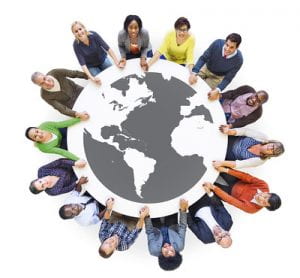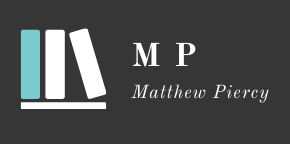
Teaching internationally sometimes is like being inside a cocoon. School days typically in English. The comforts, routines, and rhythms in our new “homes” are similar; often little difference whether in Cairo, Shanghai, or Rio de Janeiro. Of course architecturally they may differ, yet our lives therein, not so changed. In most cases, it would be a long shot to claim it is a hardship to teach in accredited international schools. So comfortable, we may even have to go out of the way to feel vulnerable. Still, the fact remains that always outside the doors of home or school is “the different.” Or more apt, the reflection that we are the “outsider.” This possibly is the motivation behind our being abroad.
And we are lucky for this chance.
The fact being, we made the choice. We also have the option of how far we might “dive into” the host culture. Fathoms deep, we may break the surface, challenging ourselves to begin learning the language. Yet, regardless we will remain “the outsider.” A feeling sometimes that could even be distressing.
Yet, we are lucky for this chance (refrain).
For the Times, They Are a Changing
How many people truly have the choice to navigate into and out of a dominant culture? Few I would argue. Instead, so many are without this privilege. They simply nod their head, stand in line, and follow antiquated systems of organization and inequity. Forced to play by what some may call, “the rules of the game.”
Singer Bob Dylan probably said it best,
And the present now will soon be the past
The order is rapidly fading
The first one now will later be last
For the times, they are a changing
The times are definitely changing. So too are the “rules.”
International School Leadership Holds a Mirror Up to Themselves
Many of us were not aware, how during the spring of 2019, the Diversity Collaborative, a voluntary group of international educators, initiated a research study by partnering with ISC Research and George Mason University. “The goal was to survey the field of accredited international schools to establish a baseline of information in the international school sector about school leadership and diversity.” 2,676 accredited international schools received the survey and an informative three-and-a-half minute video summarized the results.
Mind you this is pre-pandemic and more than a year before the murder of George Floyd. Even earlier, in 2017 The Diversity Collaborative was established, in effort to commit to creating and sustaining a more diverse, inclusive, equitable, and just international school community through our focus on leadership.
In an often myopic world bent on entropy, it is refreshing to have such good news.
Others Help Pave the Way
Within governmental agencies there is even a push for more diversity and inclusivity. This is evident, regardless of the stir caused by the CIA’s recent recruitment campaign titled, “Humans of CIA.” According to an article titled, “Unpacking the CIA’s cringey recruiting strategy,” the push for diversity is not new. “In 1994, then-CIA director R. James Woolsey said in testimony before the House Permanent Select Committee on Intelligence that “the ability to understand a complex, diverse world—a world which is far from being all white male—is central to our mission.”
According to McKinsey & Co, companies spend $8 billion a year on diversity training. Yet, this is just a start. Camille Chang Gilmore, Boston Scientific’s global chief diversity officer says it best. “Diversity is a given, inclusion is a choice, equity is a goal. Belonging is our ultimate end point.”
Belonging.
And isn’t this paradox seemingly woven into the fabric of 21st century life? Always connected but more disconnected than ever; an increasingly socially isolated world. The belonging Gilmore speaks of is almost tribal, a systemic need. It remains even more paramount when power structures are left unchecked; fraternal in their decisions of who allowed in the “room where it happens.” Or, who ultimately belongs.
But, as we have heard, “The times are a changing.”
In the school where I teach, a recent DEIJ statement was crafted to be used on the school’s website, admissions application, handbooks, etc. One part specifically attests to the importance of belongingness.
“Our community is actively engaged in reflection and action planning to ensure that our school is creating and maintaining an inclusive culture where everyone feels they belong and where our students leave with the attitudes, values, and tools they need to enrich the world.”
The Survey
The data from the 2019 survey helped form a baseline for The Diversity Collaborative’s work. This year another survey was launched (closing on May 30th) and is more detailed, requiring respondents to dig deeper into the roles of their leadership teams. The initial question is a declaration of the region of the school. Following this, nationality and race/ethnicity are defined so there is shared understanding and clarity. The survey then asks for the respondent to declare the gender, nationality based on passport, and ethnicity of the head of school. Then, questions are asked regarding the number, gender, and nationalities of members on the leadership team, as well as whether or not the leadership team has educators from the country where the school is located. The same questions are asked but this time about the school’s board members. Last, the 22-question survey repeats the questions but as they pertain to schools’ teachers.
Now What?
International schools are definitely interested in keeping pace and walking alongside the global communities they serve. Data gathering is but one small step. Reflection, policies, professional development, partnerships, advocacy and action are all in process. Ralph Waldo Emerson attested to the gravitas of action. “What you do speaks so loudly that I cannot hear what you say.” The Diversity Collaborative shared in a recent presentation a very clear statement of action in this regard.
“We recognize that the changes described will take time and resources, but that just adds to the urgency for all of us engaged with international schools to act without delay to start to dismantle the systems that have prevented some outstanding educators from becoming international school leaders and to build a more equitable and inclusive international school sector so that educators of all backgrounds thrive.”
| Helpful Links for More Information |
| ISS Diversity Collaborative |
| 2019 Infographic of the results |
| For any survey questions, please reach out to data@cois.org |
###############################
